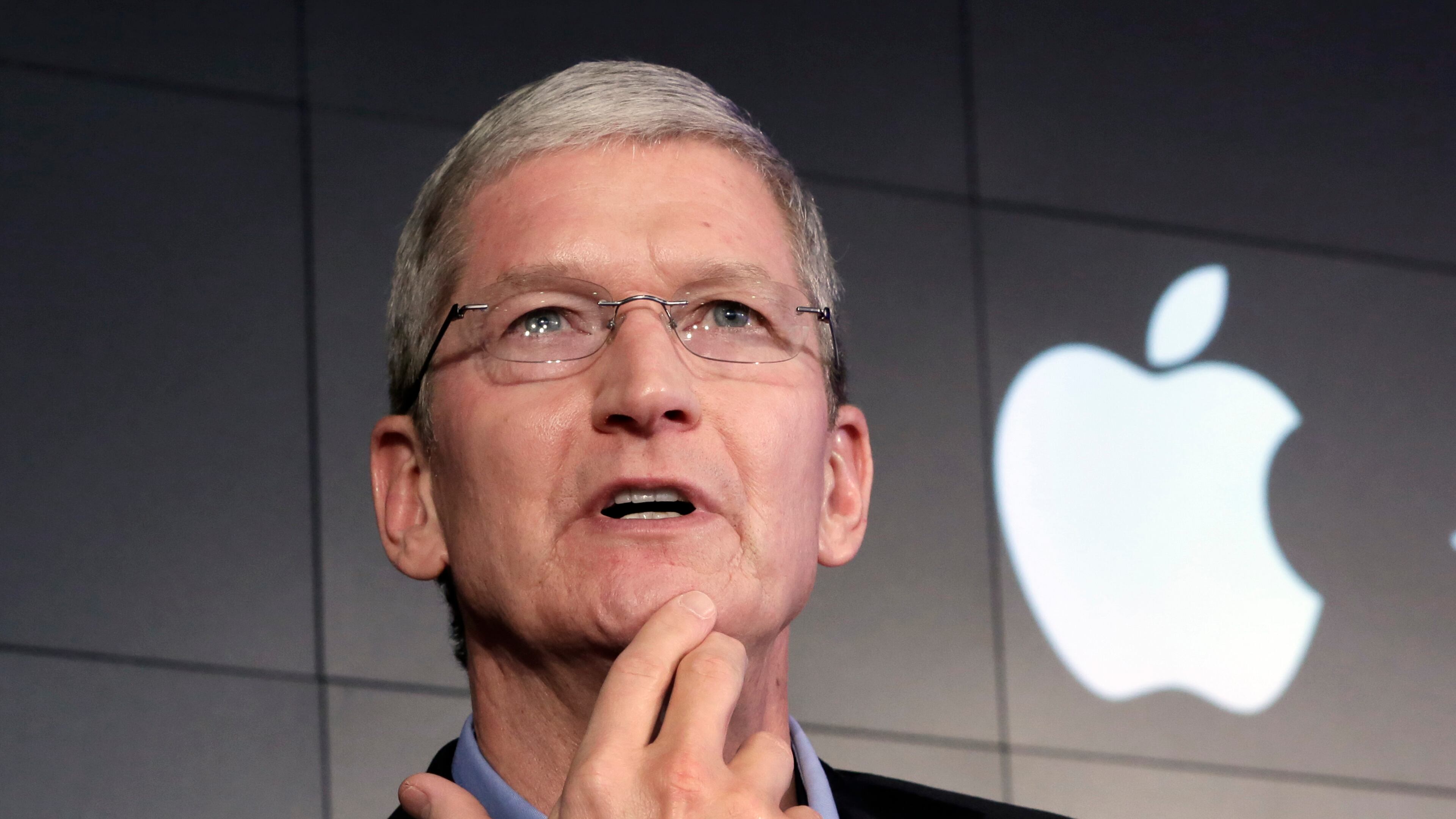A matter of 'fairness'? Not Hillary's plan for corporate taxes

One thing the slow Trump shipwreck of 2016 has done is preclude a lot of discussion about what Hillary Clinton wants to do as president. And one thing she wants to do is carry on the left-wing drumbeat about who is and isn't paying their "fair share" of taxes. Her campaign website's top-of-the-page summary of what she'd do about taxes? "Mak(e) sure the wealthy, Wall Street, and corporations pay their fair share in taxes."
It turns out that some of these folks already think they pay their "fair share." And they aren't all Republicans.
Tim Cook, CEO of Apple, reportedly will host a fundraiser for Clinton later this month that brings in as much as $50,000 a head. But he made some interesting comments about tax policy -- and the billions and billions of dollars Apple is keeping overseas because of America's punitive corporate tax rate -- in an interview the Washington Post published over the weekend :
"And so what we've said -- we think it's fine for us to pay more, because right now we're paying nothing on that and we leave it over there. But we -- like many, many other companies do -- wait for the money to come back.
"In the meantime, it's important to look at what we do pay. Our marginal rate, our effective rate in the U.S. is over 30 percent. We are the largest taxpayer in the United States. And so we're not a tax dodger. We pay our share and then some. We don't have these big loopholes that other people talk about. The only kind of major tax credit that we get is the R&D tax credit, which is available to all companies in the United States. That's important to know. The second thing I would point out is we have money internationally because we have two-thirds of our business there. So we earn money internationally. We didn't look for a tax haven or something to put it somewhere. We sell a lot of product everywhere. And we want to bring it back, and we've been very honest and straightforward about that."
Cook might want to raise these issues with Clinton next week, because she and other Democrats don't want to understand what he's talking about.
It is absurd for the United States government to expect companies to bring money earned overseas back here and hand two of every five dollars to the government. It is only rational for companies like Apple to refuse to do so. Democrats' insistence that we charge an exorbitant tax rate in the name of "fairness" only means that we get close to zero in tax revenues from those earnings, because as Cook notes it it legal for companies to leave the money elsewhere. To whom, exactly, is this arrangement "fair"?
This arrangement is good for no one: The companies themselves aren't reinvesting the money in the U.S., where they clearly want to invest it (if they wanted to invest it where it is, they'd have done so by now). Jobs aren't being created as long as the capital isn't flowing here. The government isn't able to do anything with the revenue that isn't being generated. Cook made this point earlier in the interview:
"What I've always felt should happen is that every dollar should be taxed immediately with no deferral. But as a consequence of doing that, you should have free flow of capital. What would happen is if a system like that were put in place, it should have more investment going into the United States. We're the only major country in the world that has a (taxation) system like this. It's not good for the U.S., it's not good for the economy, it's not good for jobs, it's not good for investments."
Cook went on to say that he is "optimistic" about the chances of corporate tax reform next year because "there's wide agreement to that in both parties." But we could have had corporate tax reform by now if that "wide" agreement were enough. President Obama -- who famously once said he'd keep capital gains tax rates high, even if it meant less revenue, for "purposes of fairness" -- has proposed lowering the rate. But to only 28 percent, with a one-time tax "break" of 14 percent for previously untaxed foreign earnings. Neither rate is be low enough to induce companies to bring that money back voluntarily. Nor are those rates low enough to justify as "fair" his other proposal to end the deferral of taxes on foreign earnings. There is nothing "fair" -- or smart -- about the U.S. being one of the few industrialized countries to tax foreign earnings and maintaining a tax rate that, even at 28 percent (plus state taxes), would be among the world's highest.
Count me as less optimistic than Cook, if Hillary has anything to say about what happens next year.
